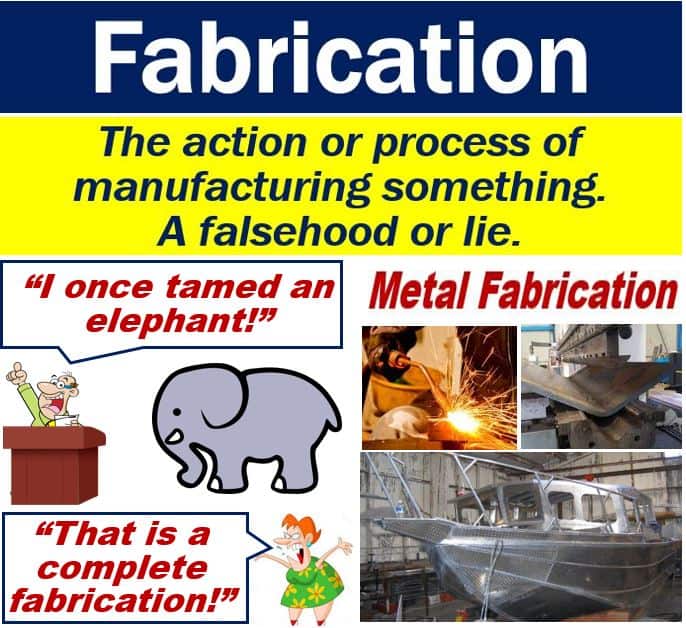Fabrication is the process of making something from semi-finished or raw materials rather than from ready-made components. In other words, it is the process of making something from scratch rather than assembling something.
Fabrication skills are increasingly essential in various industries, as they allow for the customization of products to meet specific consumer demands.
“A fabrication” may mean a lie
The term also means a lie. For example, if I say “John’s story about the elephant was a fabrication,” I mean that it was a lie.
We use the term in scientific inquiry and academic research. In this context, fabrication means the deliberate misrepresentation of research results by inventing facts, i.e., making up data.
In some jurisdictions, i.e., legal systems, the deliberate misrepresentation of research data is against the law.
Advanced fabrication techniques, such as additive manufacturing, have revolutionized the industry by allowing for more complex designs and rapid prototyping.

Metal fabrication
Metal fabrication refers to the building of metal structures by assembling, bending, and cutting processes.
It is a value-added process that involves creating machines, parts, and structures from raw materials. A value-added process is one that adds value to a product and for which customers are willing to pay.
Fab shops bid on jobs, which are usually based on engineering drawings. If they win the contract, it means they build the product.
These fab shops offer additional value to customers because they save money. For example, they do not need to use lots of employees to find vendors of different services.
Etymology of fabrication
Etymology is the study of where words came from, i.e., their origins. The study also includes finding out how the meanings of words have changed.
The term with the meaning “manufacturing, construction” emerged in the English language in the fifteenth century. According to etymonline.com, the term came from the Middle French word Fabrication.
The Middle French word came from the Latin word Fabricationem (nominative fabricatio), meaning “a structure, construction, a making.”
It was not until 1790 that it also meant “lying, forgery, falsehood.”
This video presentation, from our sister channel on YouTube – Marketing Business Network, explains what ‘Fabrication’ means using simple and easy-to-understand language and examples.
